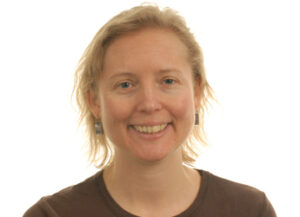Hutton’s role in MERLIN
The James Hutton Institute co-leads, together with WWF, work on transformation (Work Package 4). In this work, we focus on designing strategies for transformation that can ‘mainstream’ restoration across sectors, in order to deliver societal benefits and contribute to Europe’s Green Deal objectives (climate resilience, improved biodiversity, zero pollution, sustainable food systems, health and wellbeing). The benefits of restoration should be relevant to many sectors to help them deal with future challenges, but many lack experience in thinking or working on NbS. Hutton also contributes to other parts of MERLIN, ranging from demonstrating and implementing best-practice restoration, upscaling transformation (especially by working with new sources of finance and funding) and working on knowledge exchange and networking.
Activities and Outcomes
- As part of our work to delivering an assessment of how EU policies can mainstream freshwater NbS, we shared some draft findings with members of the EU Commission and the EEA in an online webinar. The presentation can be found here. The deliverable will be available in the autumn 2023.
- We have completed six sectoral roundtables over the past three months, involving almost 100 participants from industry, policy and civil society. The slide deck for the Peat Extraction Sector is here. You can view short reports for peat extraction, insurance and navigation roundtables. The reports for the other sectors will be shared when ready.
- A recent major deliverable involves a briefing on national / EU sector perceptions, workshops, and tailored briefings per sector. The briefing sets the baseline and priorities to further engage and cooperate with stakeholders from the six MERLIN sectors.
- Questionnaire report assesses expert opinion on freshwater restoration and nature-based solutions needs, challenges and opportunities for transformation across MERLIN economic sectors.
- On 5th October, Hutton and WWF held a virtual meeting with members of the EU Commission and colleagues to discuss how economic sectors can mainstream nature-based solutions. Kindly read the final brief report based on the meeting. The presentation at the meeting can be located here. The video recording of the main session can be viewed via this link.
- An all-partner meeting was held in Fulda, Germany. A podcast based on the meeting will be uploaded soon.
- Alhassan Ibrahim and Esther Carmen have developed a Transformation Framework to guide MERLIN’s transformation of economic sectors and case studies. Find the presentation based on the framework here.
- Kirsty Blackstock and Keith Matthews have contributed to developing a handbook for monitoring freshwater and wetland restoration based on the European Green Deal Goals.
- In June 2022, Alhassan Ibrahim presented at the XIV International Conference of the European Society for Ecological Economics held in Italy. The presentation focused on MERLIN’s communities of practice and the involvement of the private sector.
- Kerry Waylen held a webinar on the topic: Monitoring and Evaluation of Nature-Based Solutions – Thinking outside the box.
- In Spring 2022, Kirsty Blackstock, Alhassan Ibrahim, Esther Carmen and the WWF team held stakeholder roundtables for five thematic sectors of MERLIN: Hydropower, Insurance, Navigation, Peat Extraction and Water Supply. The roundtables discussed the challenges faced in the sectors and the areas of cooperation. A roundtable for the Agriculture Sector was not because there was EIP discussion that WWF participated in. A thesis was developed based on ongoing discussions and interviews with the stakeholders in the sector.
- THE IUCN self-assessment tool for measuring the Global Standards for Nature-based Solutions is being used to help MERLIN case studies to mainstream NbS based on the Standards. A presentation of the initial performance of MERLIN case studies can be downloaded here.
- A Merlin leaflet gives a 14-page overview of the project.
- Additionally, the following publication derives from predecessor work and establishes principles for restoration relevant to MERLIN: Juárez-Bourke, A.; Blackstock, K.L.(2021) Participatory approaches: principles and practices for river restoration projects., In: Morandi, B., Cottet, M. & Piégay, H. (eds). River Restoration: Political, Social and Economic Perspectives. John Wiley, pp294-307.
Resources
- Brief guideline for mapping stakeholders and establishing stakeholder boards. This downloadable guideline offers a brief, practical guideline to support stakeholder mapping and the formation of stakeholder boards to support implementation of nature-based solutions. It is accompanied by the Excel templates below that have been used by MERLIN case studies and sectoral teams to map their stakeholders and manage engagement with them. You are welcome to download and adapt both the guideline and template to suit the needs of your own projects.
- Stakeholder Mapping Tool: Developed by Alhassan Ibrahim, this Excel-based tool helps users map and understand complex relationships between different stakeholder groups – ranging from local communities to policymakers. It has been successfully applied in MERLIN to support inclusive and strategic engagement in restoration contexts. The tool is available for download and can be tailored to support stakeholder engagement in your own project or organisation.
- Stakeholder Engagement Tracking Tool: This companion Excel template is designed to help track individual engagement across a project. Using unique identifiers (e.g., 1A, 1B), the tool links each individual to the stakeholders in identified in the stakeholder mapping tool while maintaining privacy and ensuring consistency in engagement records. It has been used in MERLIN to coordinate multi-stakeholder interactions and is available for download to support your own stakeholder management and reporting needs.
Upcoming activities
The following activities are planned:
- Alhassan Ibrahim is leading task involving analysis of of just transformations to understanding how communities were engaged across local NbS projects.
- Hutton in collaboration with WWF are developing European routemap to provide pathways to mainstreaming NbS across Europe.

